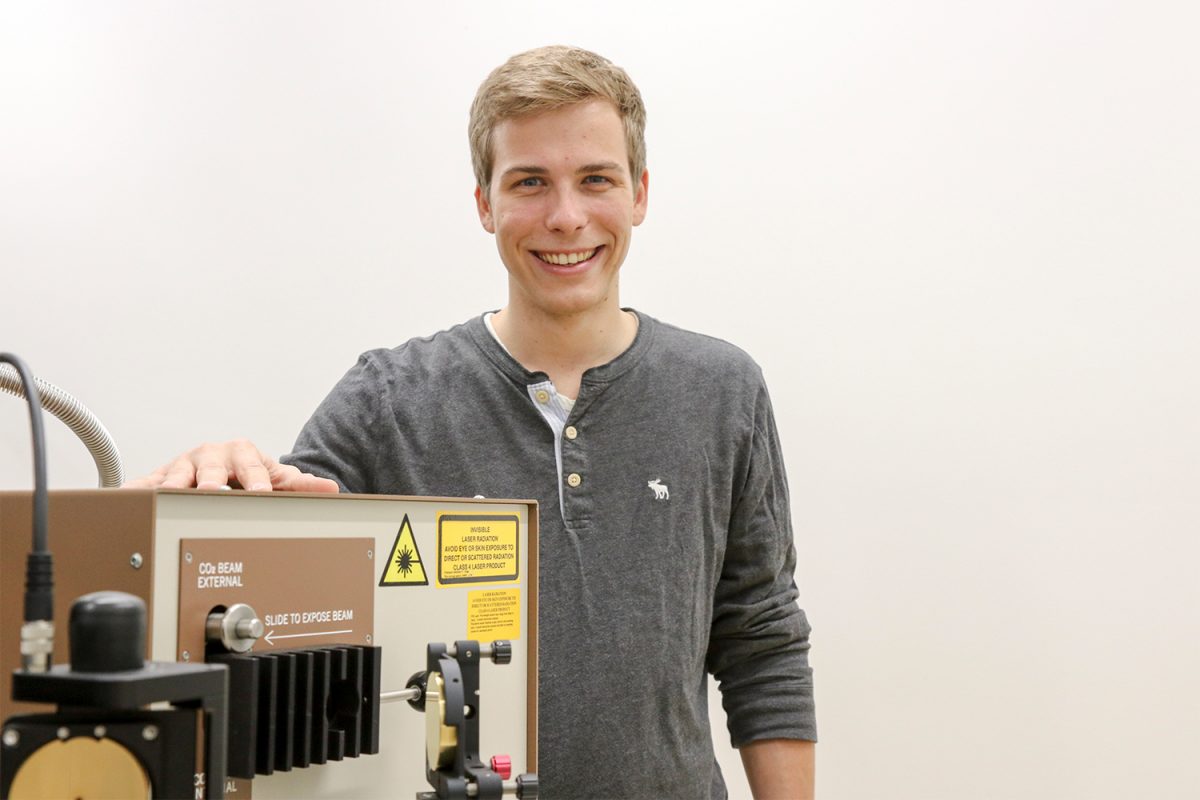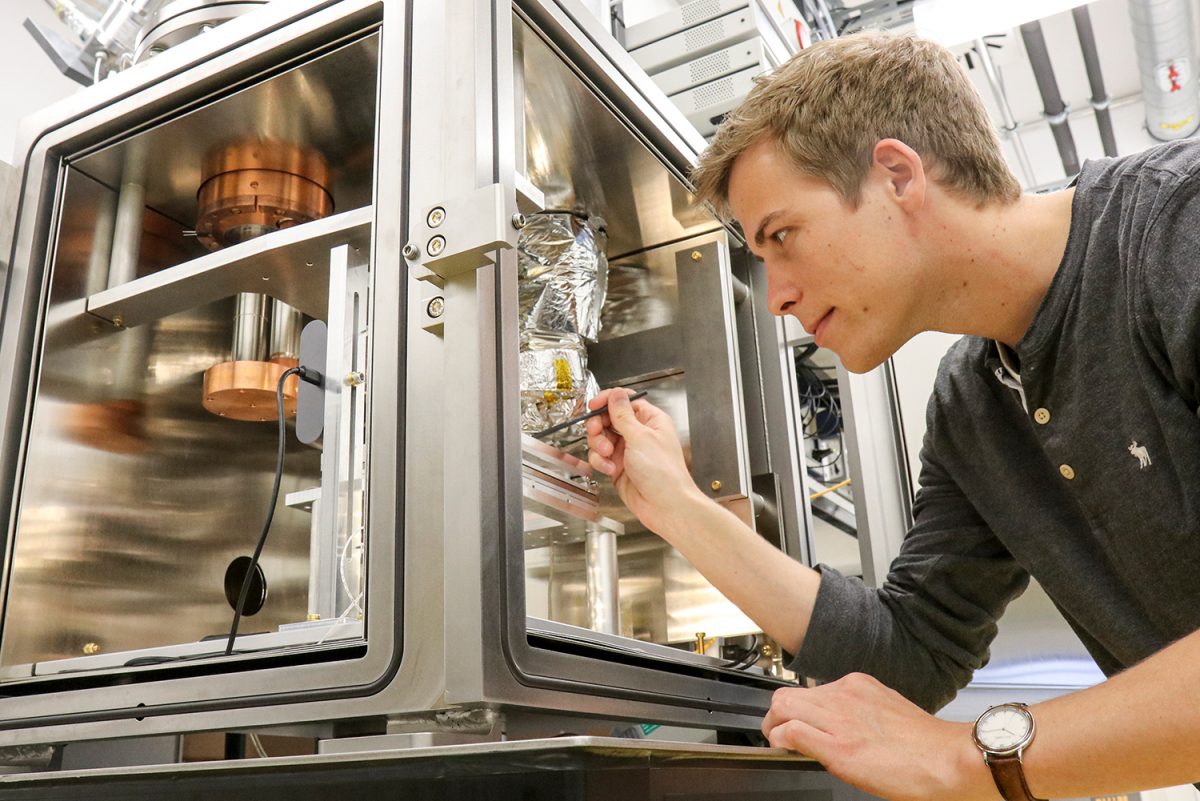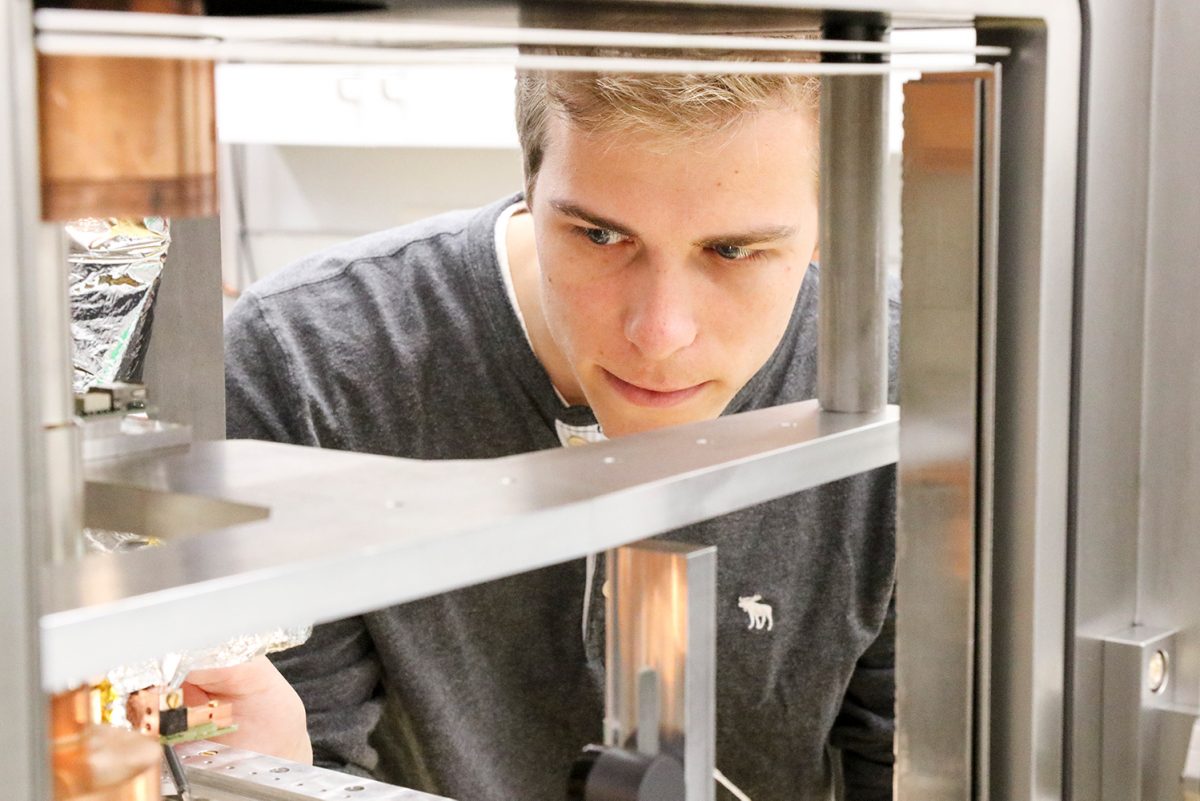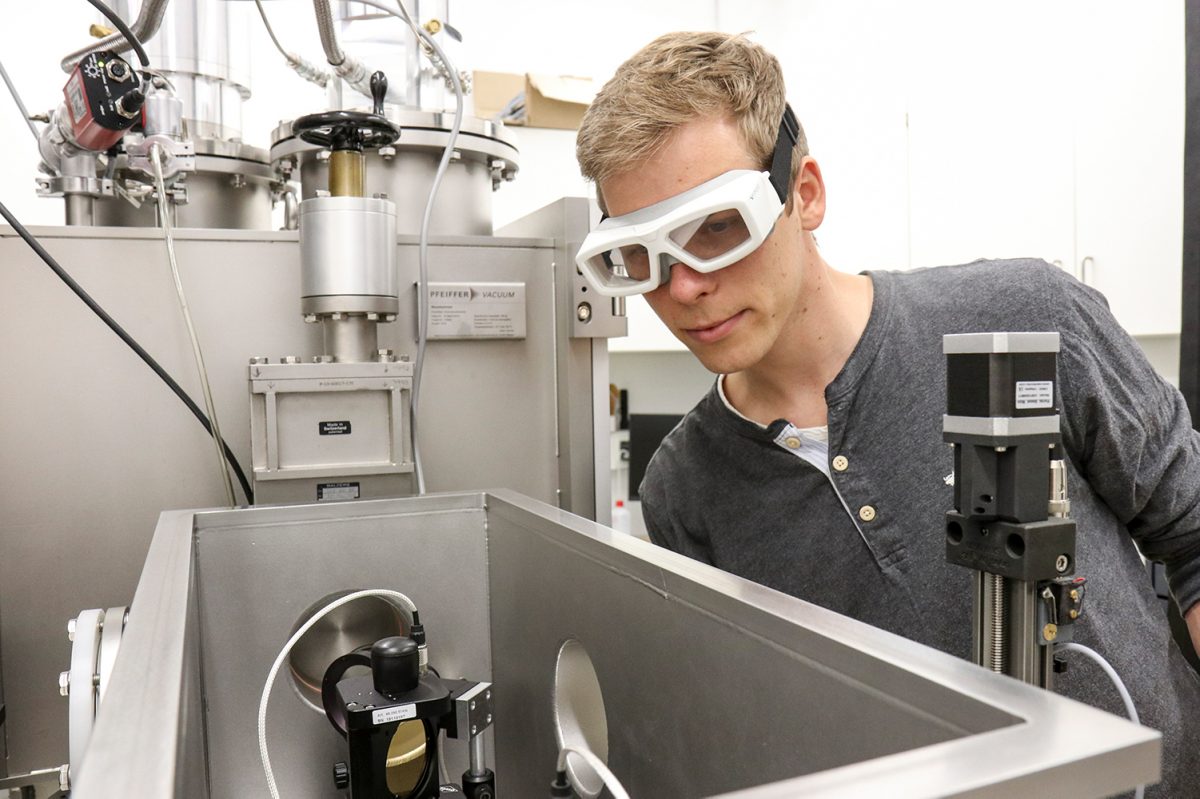Enthusiasm for Electrical Engineering Master student Julius Ritter answers questions about his studies
Julius Ritter is 24 years old and is in the second semester of his Master of Electrical Engineering. He successfully completed his Bachelor’s degree at the Technische Universität Braunschweig. Our volunteer Viktoria Heyer asked him why he chose Carolo-Wilhelmina and what about his studies inspires him.
Julius, why did you decide to study electrical engineering and study in Braunschweig?
I graduated from school in Australia. But the tuition fees there were too high for me, so I decided to study in Germany. Braunschweig was a direct contact point for me because my grandfather lives here.
I chose the Bachelor’s degree in Electrical Engineering because I am very interested in electronics and programming. Before I started my studies I was interested in microcontrollers – simple and efficient processors – and the Arduino platform, a beginner-friendly programming environment, and I wanted to evolve in this field.
I am also doing my Master in Electrical Engineering at the TU Braunschweig, because that’ s where my social life is. But also because the choice of subjects is very diverse and you know the teachers and therefore you can choose specific subjects at the institutes.
What about your studies inspires you?
The development of hardware and software in all areas and the constant challenge of learning and mastering new skills. Specifically: the programming of microcontrollers and the design of hardware. Both were a big part of my bachelor thesis.
During my spare time, I have many small projects in this field as well, where I design circuits or 3D objects (for 3D printing). The reason why I was already passionate about Electrical Engineering back then, and why I’m still passionate about this program, is because I’m learning the skills I need to do my own projects and to let my creativity run wild. For example, I designed a circuit for a Bluetooth speaker and the case for it, and created it using a 3D printer.
Enthusiasm for Electrical Engineering
Which three good reasons would you give students and interested people for your study program at the TU Braunschweig?
1. As early as the Bachelor’s degree, Electrical Engineering students from the 4th semester onwards have the opportunity to design their own study program with different modules. There is a wide range of topics from which you can choose, in the Master’s program the choice is completely unrestricted. Topics are for example power engineering, electronics and measurement technology, but also communication technology, computer technology and nanosystems.
2. The lecturers are very motivated and competent. They convey a very good connection between teaching and practice. This prepares the students very well for the everyday life of an engineer, which is also reflected in the lecture accompanying offers for laboratory visits and participation. You can gain further practical experience during your studies as a research assistant at institutes. For example, I work at the Institute of Electrical Measurement Science and Fundamental Electrical Engineering (emg) in Dr. Hampel’s group at the terahertz microscope.
3. Us students are very well supervised and supported by the student council. Seminars are offered for more difficult subjects, and we are also assisted in acquiring specialist knowledge and preparing for exams. If we have any questions, we can always get in touch with contact persons.
Another reason for studying at the TU Braunschweig is for me with regard to research: The institutes offer a variety of interesting and exciting research topics. For these, hiwis are always sought for. This way you can already participate in projects during your studies and gain practical experience.
On the featured picture we see you between laser and sample chamber at the terahertz microscope at the Institute of Electrical Measurement Science and Fundamental Electrical Engineering. During your studies you work there as a research assistant. What are your tasks?
Last year, a new THz microscope was built, now the last components have to be put into operation. THz stands for Terahertz and is the frequency spectrum between microwave radiation and infrared light. The core of the THz microscope is the sample chamber, where you can examine a sample (e.g. a chip from communication technology). The chamber is under vacuum and a sensor inside is cooled to about -250°C. A small cooler is needed for cooling and a turbo pump for the vacuum. The setup includes many more measurement electronics, which I also work on.
The goal of the new microscope is to design a reliable, automated measuring setup with a uniform programming that can be read easily and understandably. I provide support in programming and can thus put into practice the knowledge I learned during my studies. I mainly program the measuring devices that are involved in recording the measuring data from the microscope. I don’t only program hardware, but also write software for data analysis. Besides that, I currently help with the supervision of a lecture-accompanying laboratory (Digital Measurement Data Processing with Microcomputers), where I support students in programming microcontrollers.




